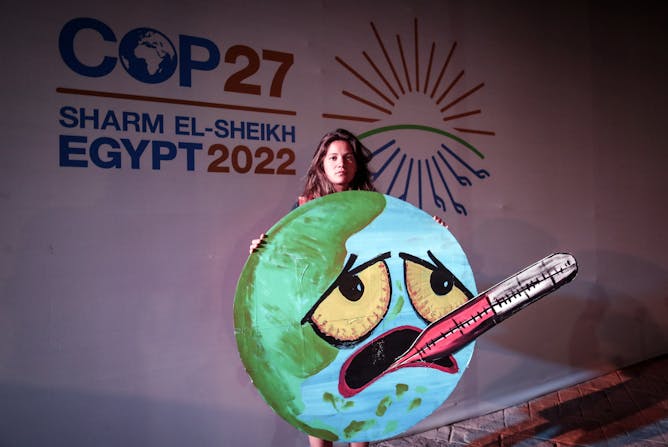|
As a news organisation with bureaux in cities from London to Boston, New York, Paris, Madrid, Melbourne, Jakarta, Auckland, Nairobi, Joburg, and Toronto we do much of our internal work via a remote platform called Slack, which will be familiar to many of you. Alongside channels such as #politics, #health and #sciences there is #football. And it’ll come as little surprise to you that there has been some discussion there among our staff of the FIFA Men’s World Cup, which kicked off in Qatar yesterday.
There’s obviously been plenty say to about this year’s event – even well before the opening ceremony and match featuring the hosts (who lost 0-2 to Ecuador) got underway yesterday. You can read Conversation authors on aspects of the controversy that has surrounded World Cup 2022 so far here. Stayed tuned to that link for ongoing coverage of issues raised by holding the tournament in Qatar in the month ahead.
Internally, we’d also been casually chatting about which we consider to be the finest World Cup, and there was a clear connection between editors’ favourites and their formative years. But our global head of audience engagement, Khalil Cassimally, said something interesting (he does so quite a lot). While picking the 2010 edition in South Africa as his top World Cup, he qualified it with “The ball was very weird though – a nightmare for goalkeepers.” It did indeed swerve like never before. So, how will this year’s ball perform? Fortunately, we’ve had a physicist take a look – John Eric Goff even put the Al Rihla ball through its paces in a wind tunnel. And he says it should feel pretty familiar to players. The aerodynamics of that ball Khalil mentioned, meanwhile, really did make it a bit of an outlier.
We’ll have articles on a range of matters raised by the World Cup as the tournament continues. Meanwhile, COP27 has concluded with a landmark agreement establishing a “loss and damage fund” for developing nations. But countries could not collectively improve on the Glasgow COP26 pledge to phase down polluting coal power or phase out inefficient fossil fuel subsidies, explains Matt McDonald, of the University of Queensland.
|

EPA/SEDAT SUNA EPA-EFE/SEDAT SUNA
Matt McDonald, The University of Queensland
The big news of COP27 was agreement to establish a fund for ‘loss and damage’. But many lamented the summit’s overall outcome, saying it falls short of a sufficient response to the climate crisis.
|

Every World Cup, Adidas introduces a new ball, and this year’s is called the Al Rihla.
Joern Pollex/FIFA via Getty Images
John Eric Goff, University of Lynchburg
Adidas releases a new ball for every World Cup. At the highest level of play, a ball that behaves in unexpected ways can throw players off. A sports physicist explains the science of this year’s ball.
|
|
|
-
Matthew Andrews, Harvard Kennedy School
A win is possible - but only in 2026 or 2030 and only if African teams get to play more high level internationals more regularly.
|
|

Elizabeth Scala, The University of Texas at Austin College of Liberal Arts
Swift, like all writers, draws from her literary forebears to craft new works.
|
|
|
-
Rees Kassen, L’Université d’Ottawa/University of Ottawa; Ruth Morgan, UCL
The UN Sustainable Development Goals set a target date of 2030. To meet that deadline, international collaboration and funding is required.
-
Lauren Sanders, The University of Queensland
The Dutch example in the convictions relating to the MH17 crash is one other courts, including in Australia, should follow in response to Ukrainian war crimes.
-
Ovunc Yilmaz, University of Colorado Boulder
This strategy to get the highest prices the markets will bear can lead to problems, as fans of Taylor Swift know all too well.
-
D. Brian Blank, Mississippi State University; Brandy Hadley, Appalachian State University
Even though some traditional financial firms parked millions in the bankrupt company – once valued at $30 billion – the impact of FTX’s spectacular crash is limited to crypto investors
-
Oli Mould, Royal Holloway University of London
In a rousing speech, one of the “organisers” of the rebellion muses on the lifelong struggle of activists and wades into the debate on the best way to effectively resist.
|
|